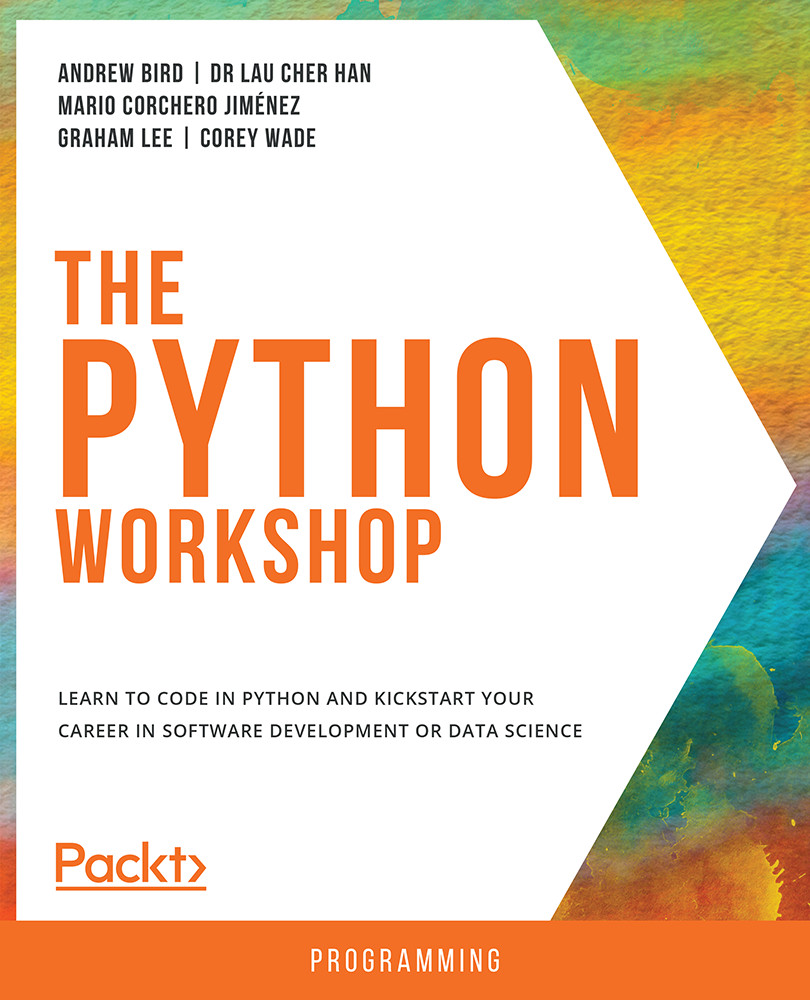-
Book Overview & Buying

-
Table Of Contents

The Python Workshop
By :

The Python Workshop
By:
Overview of this book
 Free Chapter
Free Chapter
 Sign In
Start Free Trial
Sign In
Start Free Trial


 Free Chapter
Free Chapter
You have looked at multiple modules in the standard library and how they help you write well-tested and easier-to-read code. However, there are still many more modules to explore and understand in order to use them effectively, though. We have learned that Python comes with batteries included, through its vast standard library, and that, in many situations, the utilities it provides are extended through an advanced API. By having the mindset of checking how things can be solved with the standard library before trying to write our own code, you can become better Python programmers.
Now that you have some knowledge of the standard library, you will start to look more deeply into how to make our code easier to read for Python programmers, usually known as Pythonic code. While using the standard library as much as possible is a good start, there are some other tips and tricks that we will look at in Chapter 7, Becoming Pythonic.

Change the font size
Change margin width
Change background colour